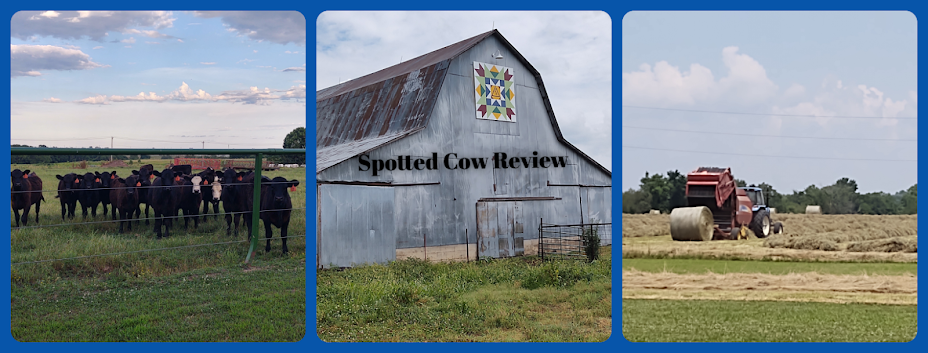
Providing a balanced diet for our dairy cows assures that our cows will be healthy and provide good quality milk. Hay is one of the important ingredients in our cow's diet. We purchase alfalfa and orchard grass hay from a farmer in Missouri who is located about 45 miles from our farm.
On our return from visiting a friend at St. John's hospital in Joplin this afternoon, Ryan and I had a hay date to sample the hay that our hay farmer baled last week. Hay sampling will provide information about the quality and nutritional value of the hay. This hay is wrapped in plastic to help preserve the nutrients. Ryan used a hay probe to sample six different bales from each row of wrapped hay. My involvement on this hay date was to follow behind the farmer and cover the entry site of the probe with Gorilla tape. A farmer's wife will do anything to spend a little quality time with the farmer!
The six samples from each row will be mixed in a bag , labeled with information about the hay and mailed tomorrow to the lab for analysis. The hay analysis will contain a long list of information about hay nutrients such as the moisture content, the percentage of dry matter and protein. All of the results from this sample will provide important nutritional information for our dairy nutritionist to use in formulating a perfect diet for our dairy cows.
Hay dates with the dairy farmer provide good nutrition for our cows and quality milk for all consumers!






